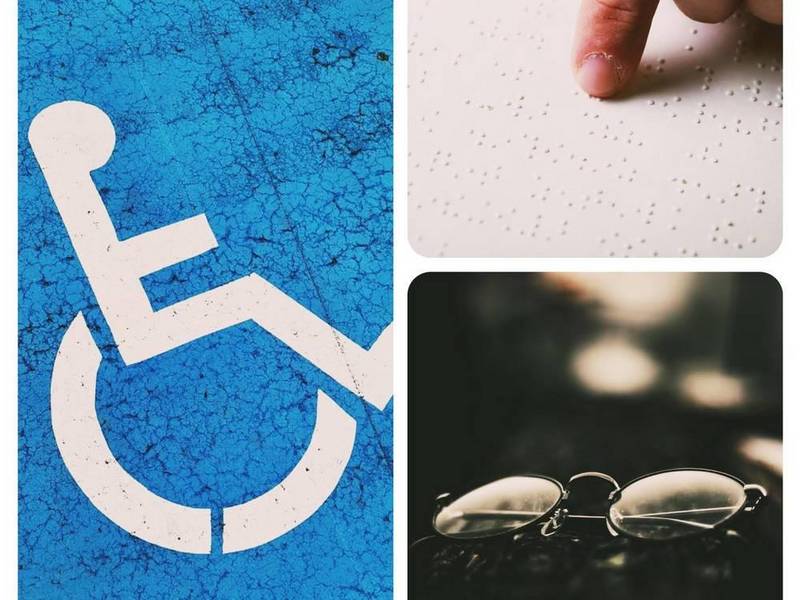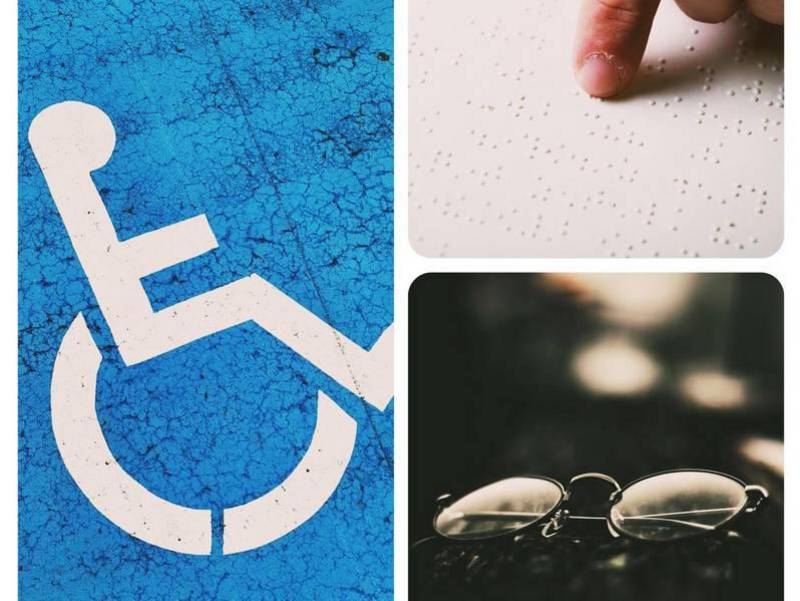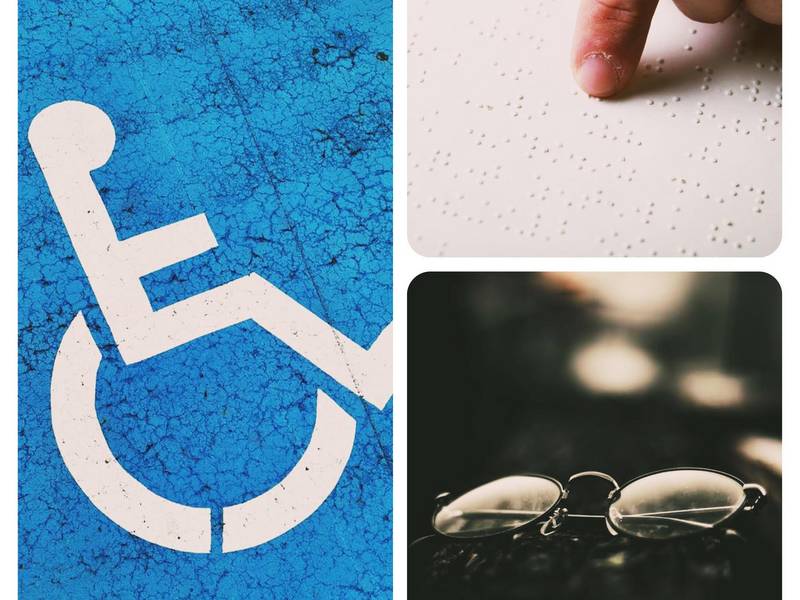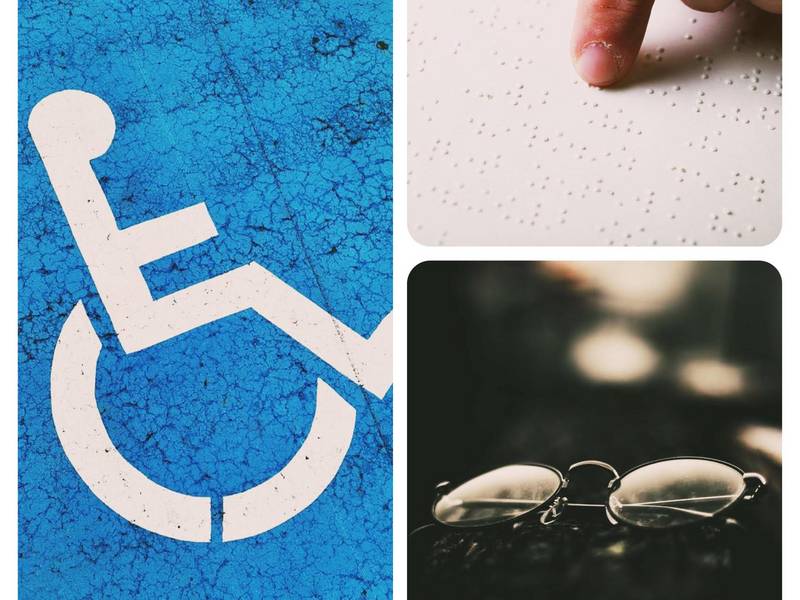Between January and March 2024, the Human Rights Ombudsman of the Republic of Slovenia (Ombudsman) dealt with various complaints from people who contacted him in connection with ensuring the human rights of persons with disabilities. He helped complainants with explanations about their rights and legislation, addressed recommendations to the competent authorities for better realisation of rights, and publicly drew attention to the rights of disabled persons. The following is an overview of completed consideration of complaints and various public activities.
Ambiguity of the criteria from Article 17 of the Rules on Subsidising Student Accommodation for Students with Disabilities
The Ombudsman found that the provision of Article 17 of the Rulebook on Subsidising Student Accommodation, which specifies additional points for recognising the right to subsidised accommodation for students with disabilities, is unclear and suggested that the Ministry of Higher Education, Science and Innovation make it more comprehensible. The Ombudsman also found that the Instructions for filling out the application form for disability insurance by the end of 2023 had not yet been harmonised with the current legislation, although the Ministry of Labour, Family, Social Affairs and Equal Opportunities (MDDSZ) already gave an assurance in June 2023 that this would be done within one month at the latest. In the operation of both ministries, the Ombudsman therefore notes a violation of the clarity and specificity of the regulations and calls on them to implement what they promised. Due to the slow response to the Ombudsman's letters, he also notes a violation of the principle of good management in the operation of the MDDSZ. (več)
Education of children with special needs
The Ombudsman actively dealt with the issue of realising the right to an appropriate programme and support for children with special needs at the level of the elementary school programme. He was informed that quite a few schools, in which children with special needs are included, have problems with overcrowding. In some places, the number of pupils has even doubled in the last 12 years. At the same time, schools face a serious shortage of personnel, especially specialised professionals. More and more children have more and more disorders, which are expressed in increasingly severe forms, so schools and institutions find it difficult to retain existing employees and recruit new ones due to the complexity of the work. The Ombudsman believes that it would make sense to solve the overcrowding problems with additional departments for children with special needs in regular primary schools. With such departments, students with lower intellectual abilities would exercise their right to attend programmes adapted to them, and diversion into segregated forms of education by changing location would not be necessary. According to the Ombudsman, such a solution would also mean the urgent relief of specialised institutions. The Ministry of Education (MVI), which the Ombudsman contacted, is in favour of such a formation of departments, which Ombudsman Svetina is pleased to learn. (več)
Suitability of the premises for the learning process of children
The Ombudsman received a letter from several parents who warned that an elementary school had decided to hold classes for students of the special education programme of the elementary school in the area of a former bar in the basement of the neighbouring faculty, which is unsuitable, without sufficient daylight, the room still has a counter with sharp edges, on which someone can get injured, and due to the long route of the emergency exit, there could also be deaths among the physically challenged in the event of a possible fire, earthquake or other accident, since it would not be possible to evacuate them in time. The Ombudsman addressed a written inquiry to the school and also visited it personally. During the visit, he received information that the matter is already being considered by the inspectorates for the field of education, health and fire safety. The Ombudsman left the professional assessment to the authorised inspectors, although he was able to make a layman's assessment that the premises of the former bar in the basement of the faculty in the immediate vicinity of the school are clearly unsuitable for the implementation of the pedagogical process in an elementary school. The Ombudsman recommended that the school examine the possibilities of providing other, more suitable premises, or that at least the most exposed edges of the counter should be protected in the event of a child falling, and of course also that all the findings of the competent inspection services and their possible suggestions and recommendations be strictly followed.(več)
Difficulties in placing a child in a vocational institution when a measure of a more permanent nature is imposed
The Ombudsman received for information a copy of a letter from the district court, with which the MDDSZ and the Council of the Republic of Slovenia for Children and Family were informed about the problems with imposing a measure of a more permanent nature by placing a primary school child in a regionally competent professional institute. The court stated that in the specific case, the primary school child had to be taken out of a harmful environment and placed in a professional institute in the next school year (20023/2024). The professional institute announced before the hearing that it was at full capacity and that it could not accept the child. In addition, it would not be appropriate or it would be harmful for him to be placed in a housing group among high-school students. The court emphasised that it is a case of urgent consideration of a representative of the most vulnerable group in society, who must immediately be guaranteed the continuation of primary school education in an environment suitable for him. It is intolerable that a child should be denied legal protection and left in an environment where he endangers himself and others due to the lack of capacity that the state must provide. After receiving the response from the Ministry of Education and Training (MVI), the Ombudsman concluded the consideration of the specific complaint, as suitable accommodation was found for the child at risk in time. However, since this was not the only complaint addressed to the Ombudsman that highlighted problems with the placement of children and adolescents according to the ZOOMVA, the Ombudsman continues to address the said issue. It is unacceptable that, due to a lack of capacity and personnel, the state would forget its duty to ensure the greatest benefit of children by leaving them in dangerous environments. (več)
Ombudsman warns that admission of a person to a protected ward cannot be done on the basis of the consent of the legal representative
The Ombudsman was made aware of a case where the competent centre for social work (CSD) did not want to submit an application to the court for the admission of a person to the protected department of a social welfare institution, even though it assessed that the admission was absolutely necessary and was aware that the person was unable to give consent. The CSD was of the opinion that consent for a person can be given by his or her legal representative. The Ombudsman warned the CSD that a person cannot be admitted to a protected ward based on the consent of his or her legal representative, and suggested that the CSD take this into account in the future when dealing with such cases. In the specific case, however, the court had already decided on acceptance based on the application of another proposer, so the proposal that could have been submitted by the CSD was no longer relevant. (več)
National Preventive Mechanism visit to a training, work, and care centre
In March, a representive of the DPM[1] visited five units of the Dolfke Boštjančič Centre for Training, Work and Care in Draga.
Threatening the existence of the operation of welfare and work centres
The Ombudsman was aware of the issue of endangering the existence of the operation of welfare and work centres (VDCs), which were made aware of the reduction of budget funding by more than 80 per cent with the financial starting points for 2024. He warned that such conduct would be a violation of the Constitution of the Republic of Slovenia, the Convention on the Rights of Persons with Disabilities and the legislative framework of the Republic of Slovenia, whose mission is carried out by the VDCs. (več)
Ombudsman expresses his indignation at the views of URI Soča and urges the authorities not to take disabled persons hostage
The Ombudsman repeatedly warned the authorities about the problem of not providing examinations in the Outpatient Clinic for Drivers with Special Needs at URI Soča during the medical strike. The Ombudsman assessed the behaviour of URI Soča, which did not listen to the Ombudsman's recommendations and did not take into account the commitments arising from the Convention on the Rights of Persons with Disabilities, as unacceptable. (več)
Ombudsman warns about the illogical and uneconomical procedure of claiming the right to care allowance for people with Down syndrome
On the occasion of World Down Syndrome Day, the Ombudsman drew attention to the issue of the procedures for asserting the right to care and care allowance and expressed the expectation that the MDDSZ will regulate the procedures as soon as possible, and above all, with common sense and supported by weighty arguments, in a way that does not burden not only the parents of children with Down syndrome again and again every year but also other competent institutions. The Ombudsman also observes that it often takes several years for associated problems, which can develop early despite the efforts of parents and professionals, to be properly identified and defined in the medical documentation, which is the basis for defining various rights. The Ombudsman believes that the relatively slow recognition of all problems should be taken into account when preparing changes, especially due to the severe lack of various specialists, as well as the fact that medical methods cannot reduce the needs of children with Down's syndrome for the help of third parties. (več)
At Educational Days for an inclusive society
Human Rights Ombudsman Peter Svetina attended the roundtable Responsible Alliance for an Inclusive Society, which is part of the XXXII. Education Days, held in Portorož on 27 March 2024, where he emphasised, among other things, that in order to achieve comprehensive inclusive education, it is necessary to consider the education of children with special needs when overhauling the school system, and pointed out the problems with overcrowding in some schools. (več)
In Strasbourg on approaches to the execution of judgments relating to involuntary detention and treatment on mental health grounds
On 27 March 2024, Deputy Ombudsman Ivan Šelih took part in a conference in Strasbourg entitled “Of Unsound Mind: Convention-compliant approaches to the execution of judgments concerning involuntary detention and treatment on mental health grounds”. The participants paid special attention to the jurisprudence of the European Court of Human Rights (ECtHR) in connection with Article 5 of the Convention for the Protection of Human Rights and Fundamental Freedoms (ECHR), which (among other things) stipulates the right to freedom and security for persons detained due to mental disorders. According to some findings, the jurisprudence of the ECHR has made significant progress in this area in recent years, but there are delays in the execution of judgments. Therefore, the central purpose of the conference was to check the possibilities for progress in this area as well. (več)
The Centre for Human Rights organised an online meeting of the ENNHRI Working Group on Disabilities
Adviser to the Ombudsman Jerneja Turin, who chairs the working group of the European Network of National Institutions for the Protection of Human Rights (ENNHRI) for the rights of persons with disabilities, organised an online meeting for the members of the working group in March 2024, where they shared experiences regarding the implementation of the mandate of the independent monitoring mechanism under the Convention on the Rights of Persons with Disabilities.
Previous reviews of the Ombudsman's activities in the field of the rights of people with disabilities (clicking on the indents below will take you to the place where they are published):
- oktober-december 2022
[1] The role of the National Preventive Mechanism (which was established within the framework of the Ombudsman based on the request of the Optional Protocol to the Convention against Torture and Other Forms of Cruel, Inhuman or Degrading Treatment or Punishment) is to visit places of deprivation of liberty in the country and check the treatment of persons deprived of their liberty freedom, with the aim of strengthening their protection against torture and other forms of cruel, inhuman or degrading treatment or punishment.





